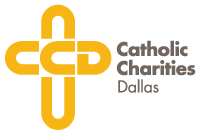- Need Help?
- Mobile Food Truck
- Services
- Get Involved
- About
- Events
- News
- Make a Gift
President Obama’s Immigration Actions on Nov. 20, 2014
Questions & Answers
1) What is the difference between Administrative Relief and Immigration Reform?
Administrative Relief is an Executive action, a power within the President’s authority, to offer relief. Any reform to immigration law must be taken by Congress, who has the authority to make changes to immigration law. Executive actions are typically used to temporarily offer relief to a select and specific group.
2) What does “temporary” relief from deportation mean?
It means that it is not a permanent change to their status. If we look at the most recent historical executive action in immigration, Deferred Action for Childhood Arrivals, young people who qualified were granted a 2 year reprieve from deportation and a 2 year work permit, which could then be extended for another two years after that, with no limit on the number of renewals.
3) Who will be eligible, specifically?
Adults who have been residing in the U.S. since before January 1, 2010 and are also the parents of a U.S. Citizen or Lawful Permanent Resident child. They must also not be an enforcement priority under newly issued guidance.
4) Who will NOT be eligible?
Individuals who are and enforcement priority under newly issued guidance. Those who arrived after the cutoff date. Those without U.S. Citizen or Legal Permanent Resident children. Those who cannot prove their eligibility with documentation.
5) How many people do you anticipate assisting?
According to the Migration Policy Institute, a well-respected organization known for its rigorous application of scientific principles, a total of 5.3 million individuals will be eligible for this new relief. The estimate for people living in Texas potentially eligible for relief could range from 700,000 to one million. Of this estimate approximately 25% or 185,750 could be living in North Texas. Based on our experience and discussions we’ve had with area non-profits, we anticipate we could see 15% of that number or approximately 27,000. Again, though, this is a guesstimate.
6) How do you think these numbers will compare to the number of people you assisted through DACA?
We anticipate the number will be much higher than DACA. This is a larger pool of individuals.
7) What will the filing process involve?
What will eligible people need to do? Most likely it will involve some type of form & evidence to substantiate that the individual qualifies – it’s a good idea to go ahead & start getting documents to prove your time in the United States, birth certificates, passports if available & to start saving money because there will most likely be a fee. For the parents of United States Citizens (USC) and Lawful Permanent Residents (LPR) the administration intends to begin accepting applications 180 days from November 20, 2014.
8) How will CCD help in that process specifically?
CCD will be here to consult with individuals about whether or not they qualify and to explain the documents and fees associated. We anticipate assisting thousands of individuals with their applications. We will continue to conduct information sessions and outreach to the community. To the extent possible we will make ourselves available in outlying counties throughout North Texas.
9) Why are you helping aid illegal aliens?
Catholic Charities is motivated by our faith to advocate for and empower people in need regardless of race, religion, age, gender or national origin and calls the community to action. Our programs seek to serve the most poor and vulnerable among us. Strengthening families and welcoming the stranger are two of our four core mission areas. According to the Migration Policy Institute, 3.5 million of the undocumented immigrants live below the federal poverty line.
10) What will the President’s directive allow these people to do that they cannot do now?
Individuals will receive work authorization for a 3 year period that can be renewed. In most states approved applicants will also be able to apply for a driver’s license. Other potential benefits may be access to lending institutions and the establishment of a credit history.
11) Why aren’t you helping more American born citizens?
Our organization helps citizens in many ways. The Catholic Charities immigration program is only one of an abundance of programs serving those in need in our community

